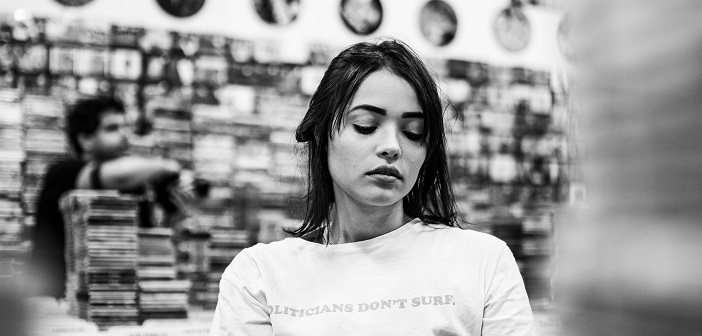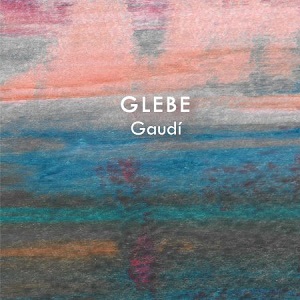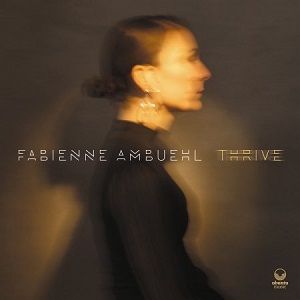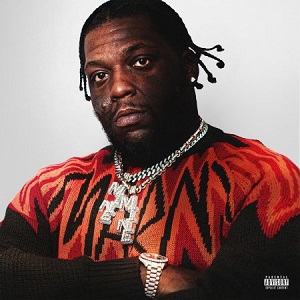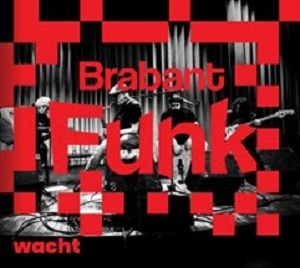Album review overview: Ela Minus, Glebe and more
Dozens of new albums arrive at Maxazine’s editorial staff every week. There are way too many to listen to them all, let alone review them. It ensures that too many albums are left behind. And that’s a shame. That is why today we post an overview of albums that arrive at the editors in short reviews.
Glebe – Gaudi
Guitarist Kieran Gunter and pianist Chris Bland, the core of Glebe, are not the first to be inspired by the work of architect Antoni Gaudi. Barcelona’s city is filled with remarkable buildings, with the unfinished Sagrada Familia as its most famous attraction. Does organic architecture, featuring intricate constructions based on geometric principles, translate into Glebe’s music? Yes, particularly in the track named after the master builder: “Gaudi’s Blues”. Just as Gaudi flipped his models upside down to test the rigidity of his complex designs, drummer Fillipo Galli and Bland lead listeners astray with unusual rhythms solid enough to support Gunter’s guitar work. The other eight tracks on the album are more conventional, with Glebe refusing to be pinned down to a single style. The album ranges from folk to up-tempo fusion in “You Can’t Write Tears” and even Latin American influences in “Il Regna Della Tomba,” where the upright bass takes centre stage. Gunter and Bland are joined by a variety of musicians, creating a rich, textured sound. This extends to the vocal contributions of singers Francesca Confortini, Clare Wheeler, and Tara Minton, the latter also playing the harp on the dreamy “Haflinger.” A wonderfully varied album where new details emerge with every listen—worthy of Gaudi. (Jeroen Mulder) (8/10) (Daggio Records)
Ela Minus – DÍA
DÍA, the second album by Ela Minus, marks an evolution in the journey of the Colombian electronic artist from punk drummer to electronic auteur. Staying true to her hardware-only approach, this deeply personal record unfolds like a musical advent calendar, with each track revealing new sonic landscapes. The album begins introspectively, with contemplative soundscapes mirroring Minus’ intimate songwriting. However, during “Abrir Monte,” the album truly blossoms as rhythmic patterns break through dense drone textures, creating unexpected moments of clarity. This transformation mirrors the broader coming-of-age narrative of the album, which tells the story of a young woman’s path to self-discovery through increasingly complex arrangements. Recorded over three years across locations from Colombia to California, DÍA showcases Minus’ versatility, effortlessly bridging introverted ambient passages with pulsating club rhythms. Collaborating with acts of rebellion contributors Marta Salogni and Heba Kadry, Minus crafts a cathartic musical journey that begins in darkness but gradually opens to light and revelation, proving her mantra of ‘light music for dark times’ continues to evolve in compelling ways. (Jan Vranken) (8/10) (Domino Recording)
Fabienne Ambuehl – Thrive
Swiss pianist and vocalist Fabienne Ambuehl is not yet a household name in jazz, despite a highly successful debut in 2015. “Thrive,” her second album, aims to change that. To achieve this, she surrounded herself with seasoned musicians, including bassist Matt Ridley of the Darius Brubeck Quartet and guitarists Tom Ollendorff and Ant Law. The latter has released eight albums, the most recent with vocalist Brigitte Beraha, which is well worth a listen. Back to Ambuehl: on the opening track “New Ones,” the spotlight belongs to Law. Only in “Immaculate Rain” do we fully hear Ambuehl’s vocals in all their glory as she asks the rain to wash away her worries. Nature is a clear source of inspiration, but she also draws heavily from English poetry. In “My River,” she quotes Emily Dickinson’s poem: ‘My River runs to thee—Blue Sea! Wilt welcome me?’ From this ambient, beautifully sung musical poem, the album transitions to the swinging instrumental “Binocular,” where Ambuehl focuses solely on piano. The album’s highlight is “Nihil,” which begins quietly with piano and gradually builds into a dynamic composition with fluid solos from bass, piano, and guitar. Once again, Ambuehl’s voice is absent—a shame, as her stunning voice deserves more attention. (Jeroen Mulder) (7/10) (Ubuntu Music)
Rio da Yung OG – Rio Free
From the concrete cells of an Arkansas prison to the gleaming world of private jets, Rio Da Yung OG’s comeback EP “Rio Free” is a raw document of a rapper grappling with his newfound freedom. The 26-minute release portrays an artist rediscovering his place in a world that feels both familiar and alien. The production, dominated by Michigan’s signature sound with dark piano riffs and pounding bass, provides a fitting backdrop for Rio’s paranoid worldview. Only on “Shake Back,” with its Milwaukee influences, does the album briefly step out of its comfort zone. The absence of features and hooks emphasizes isolation but also limits the scope of what was once Rio’s greatest strength—his ability to reach new heights in dialogue with others. While his earlier work shone with bold humour and carefree bravado, this project is tinged with nervous tension. Rio raps like someone constantly looking over his shoulder, mistrusting both friends and enemies. “Rio Free” is an intriguing yet uncomfortable portrait of an artist caught between triumph and trauma. (Elodie Renard) (6/10) (BOYZ Entertainment)
Brabant Funk – Wacht
I often encounter Bertus Borgers (of Mr. Albert Show, Sweet d’Buster, Herman Brood, Golden Earring, and Raymond van het Groenewoud fame) here in the city—at the supermarket or the City. We greet each other, or we don’t, and move on. I always think to myself: ‘What a legend, and yet so down-to-earth.’ Once, we had a beer together, and I’ve shared more than a few with his brother Ruud over the past 30 years. Together, they form Brabant Funk, along with drummer Bertho Mollen and Maurice Christian George on bass. On “Wacht,” (“Wait”) they deliver a mix of new Brabantian songs by Bertus and older English repertoire. Slightly rougher than Bertus’ brilliant albums “Z.G.A.N.” and “Ver Van Hier,” but with the same kind of swagger that makes “Wacht” an essential addition to any collection of honest, authentic music. Funk? Yes, but with a generous dose of rock and blues. While the Dulfers are often mentioned as saxophonist royalty, “Wacht” makes it clear that there’s only one godfather of Dutch saxofunk. (Norman van den Wildenberg) (8/10) (Bogey Music)
![]()

